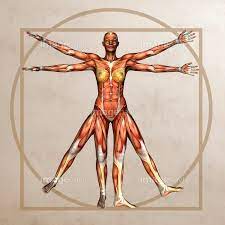
アルゼンチンの世界的作家、J.L.ボルヘスによる講演録から、仏教への深い洞察をご紹介
します――バイリンガルで、どうぞ。
I would like to introduce the profound insight into Buddhism of the world-famous
Argentina novelist in his lecture notes――more to come both in English and
in Japanese.
The tolerance of Buddhism is not a weakness but rather part of its particular disposition.
Buddhism is, above all, what could be called a yoga. What is yoga? It is the same word
as yoke, which has its origin in the Latin inguim――a yoke, a discipline man imposes
on himself.
仏教の許容性は弱点ではなく、仏教の性質そのものに属しています。仏教とは何よりも
まず、ヨガと呼びうるものでした。ヨガとは何でしょうか。それは私たちが軛 (ユゴ) と
言うときに使うのと同じ言葉で、ラテン語のユグyugu が語源です。軛 (くびき) 、人が
自らに課す規律です。
If we understand what the Buddha preached in that first sermon in the Deer Park
in Benares twenty-five hundred years ago, we may understand Buddhism. Except that
one does not attempt to understand it, one attempts to feel it in a deep way, to feel it
in body and soul――except, of course, that Buddhism does not admit the reality of
the body or of the soul.
したがって、2500年前にベナレスの鹿の園で行なったあの最初の説教でブッダが説いた
ことが理解できれば私たちは仏教が理解できるでしょう。といっても、理解するのでは
なく、それを深く感じる、肉体と魂で感じるのです。ただし、仏教は肉体の現実も魂の
現実も認めません。
What does it mean to be Buddhist? To be Buddhist is――not to understand, because
that can be accomplished in a few minutes――but to feel the four noble truths and
the eightfold path.
では、仏教徒であるとはどういうことなのか。仏教徒であるとは。理解することでは
ない。そんなことはすぐにできてしまう。そうではなく。四つの崇高な真理と八つの道
を感じることなのです。
The Buddha says: “As the vast ocean has only one flavor, the flavor of salt, so the flavor
of the Law is the flavor of the salvation.” His followers have lost themselves (or found
too much) in metaphysical disquisitions. But that is not the goal of Buddhism.
A Buddhist may profess any religion as long as he follows the Law.
ブッダは言います。「あの広大な海の味がただひとつ、塩の味であるように、法の味
とは救済の味なのだ。」彼の説く法は大洋のように広大ですが、ただひとつの味しか
しない。救済の味です。当然のことながら、後継者たちは、形而上学的探究に耽る
ことで時間を無駄に (あるいは多くの成果もあったでしょうが) してきました。けれど
それは仏教の目的ではない。仏教の法に従っている限り、仏教徒はいかなる宗教をも
信仰することができる。
What is important is salvation and the four noble truths: suffering,
the origin of suffering, the curing of suffering, and the way to arrive at the cure.
At the end is Nirvana. The order of the truths doesn’t matter. It has been said
that they correspond to the traditional medical formulation of sickness,
diagnosis, treatment, and cure. The cure, in this case, is Nirvana.
重要なのは救済と四つの真理、すなわち苦悩、苦悩の原因、苦悩の治癒、治療に至る
ための方法です。最後には涅槃がある。真理の順序は重要ではない。それは病気、
診断、治療、回復という、古代の医療の伝統に対応していると言われています。回復
というのはこの場合涅槃にあたります。
What does it mean to reach Nirvana? Simply that our acts no longer cast shadows.
While we are in this world we are subject to karma. Every one of our acts is interwoven
into this mental structure called karma.
涅槃に達するとはどういうことか。ただ私たちの行ないがもはや影を落とさなくなるに
すぎません。この世にいる間、私たちは業 (カルマ) に縛られている。私たちの行ないの
ひとつひとつが、 業 (カルマ)と呼ばれるあの精神構造を織り成しているのです。
When we have reached Nirvana our acts no longer have shadows; we are free.
St. Augustine said that when we are saved we will have no reason to think about good
or evil. We will continue to do good, without thinking of it.
が、私たちが涅槃に達すると、私たちの行為はもはや影を落とさなくなり、私たちは
自由になります。聖アウグスティヌスは、救済されれば私たちには善悪のことを考える
理由がなくなる、と言いました。私たちは考えることなく、善を成し続けるのです。
What is Nirvana? A large part of the attention that Buddhism has gained in the West is
due to that beautiful word. It seems impossible it does not contain something precious.
Nirvana is, literally, extinction, extinguishing. It is conjectured that when one reaches
Nirvana he is extinguished.
涅槃とは何か。仏教が西欧で注目された最大の理由はこの美しい言葉にあります。涅槃
という言葉には、どう見ても何か素晴らしいものが秘められているようです。文字通り
の涅槃とは何でしょう。それは消滅、消え去ることです。涅槃に達した者は消えると
想像されたのです。
But when one dies there is a great Nirvana, and then extinction. However, an Austrian
Orientalist has noted that the Buddha employed the physics of his time, and the idea
of extinction was not the same as it is today.
けれど、人が死ぬとき、大きな涅槃があり、そして消滅がある。ところがオーストリア
の東洋学者は、ブッダがその時代の物理学を用いていること、消滅という観念が
そのころと今では違うことを指摘しています。
It was thought that a flame, when extinguished, did not disappear. It kept living,
it endured in another state. Therefore Nirvana does not mean extinction, it means
that we continue in another way, in a way that is inconceivable for us.
なぜなら、炎というものは消えてもなくならないと考えられていたからだ、と
言うのです。炎は生き続け、別の状態で保たれると考えられていたのです。
したがって、涅槃と言っても、必ずしも消滅を意味したわけではありません。私たちは
別の形で生きながらえるということなのかもしれません。私たちには思いもよらぬ
形で。
In general, the metaphors of the mystics are nuptial; those of the Buddhist are
different. When one speaks of Nirvana, one does not speak of the wine of Nirvana or
the rose of Nirvana or the embrace of Nirvana. One compares it to an island,
an unmoving island surrounded by torments. It is compared to a tower or to a garden.
It is something which exists on its own, beyond us.
一般に神秘家の用いる暗喩は、婚礼に関係がありますが、仏教徒のは違います。涅槃に
ついて言うとき、涅槃の葡萄酒とか涅槃の薔薇あるいは涅槃の抱擁ということは
言いません。それはむしろ島に喩えられます。嵐の真っ只中にある不動の島です。
あるいは高い塔に喩えられたり、庭園に喩えられたりすることもあります。それは
私たちとは無関係に、それ自体で存在しているものです。
Buddhism is not a museum piece; it is a path of salvation. Not for me, but for millions
of people. I hope that I have treated it with respect, discussing it here tonight.
私にとり仏教は、博物館の展示物ではない。それは救済に至る道なのです。私いとって
だけではありません。数多の人々にとってもそうです。それは世界で一番普及している
宗教なのです。今宵私は最大限の敬意をこめて、仏教についてお話ししたつもりです。
My THIRD anthology has been published.
Please order it from Amazon if you are interested in.
私の3番目の詩集が、出版されました。
興味のある方は、アマゾンでご購入をお願いいたします。
■プライバシー・ポリシー
当ブログは、Amazon.co.jpを宣伝しリンクすることによってサイトが紹介料を獲得
できる手段を提供することを目的に設定されたアフィリエイト宣伝プログラムである、
Amazonアソシエイト・プログラムの参加者です。このプログラムにおいて、
第三者がコンテンツおよび宣伝を提供し、ユーザーからの情報を収集し、訪問者の
ブラウザーにクッキーを設定することがあります。プログラムにおいて情報の
扱いについてはAmazon.co.jpプライバシー規約をご確認ください。
Amazon.co.jp ヘルプ: Amazon.co.jp プライバシー規約




















